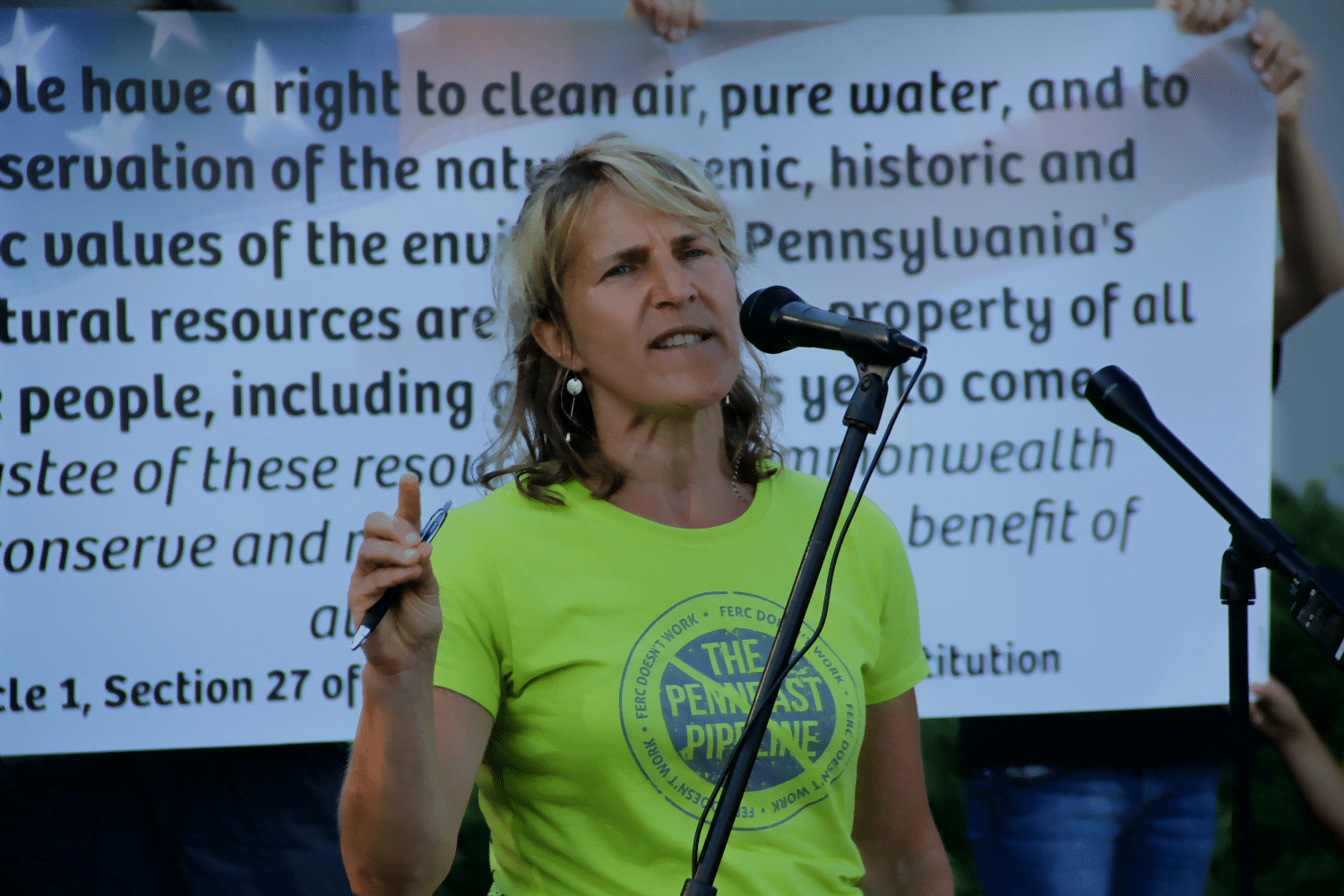The Delaware River is the longest undammed river east of the Mississippi. Originating in Catskill, New York, it travels 330 miles and traverses four states: New York, New Jersey, Pennsylvania and Delaware. It is the primary water source for more than 17 million people and, for decades, has been the chief drinking water source for New York City.
An assortment of plant and aquatic life, including horseshoe crabs, Atlantic sturgeon, shad, trout and eel – of which some species are endangered – call the river home.
Historically, the river was without environmental protections and was subject to mass contamination as early as 1920. In the 1940s and 1950s, all types of waste were being freely dumped into the water by industry and municipalities; an Army pilot actually claimed he could smell the river from 5,000 feet in the air. At the time the contamination was so intense that oxygen levels plummeted and the water became a dead zone where nothing could live.
Hard work, including the passage of environmental legislation at the state and federal levels, eventually changed the river into the thriving ecosystem that we enjoy today.
The Riverkeeper Network, a 501(c)(3) not-for-profit, is the only citizen action organization that works the entire length and breadth of the Delaware River and its watershed. The agency has been protecting the river against an assortment of exploitative infringements for more than three decades under the direction of Maya K. van Rossom, the network’s chief executive officer. Licensed to practice law in Pennsylvania, New Jersey and the District of Columbia, van Rossum’s knowledge of the river is vast, impressive and passionate.
“Our beautiful Delaware River and its watershed sustains every aspect of our lives. It provides us the water we drink, the natural ecosystems that enrich our lives, it sustains the businesses that support our jobs,” said van Rossum. “It is vitally important that in every action we take and every decision we make we ensure protecting our River, streams and watershed is always a priority. We can absolutely protect our River while sustaining and enjoying every aspect of our lives. If you doubt that, invite me to come to your community and we’ll talk about it!”
With offices situated in Bristol, Pennsylvania, van Rossum has navigated the river’s protection under four different Pennsylvania governors. By far, one of the biggest challenges to the river’s health and wellbeing has been the threat of the fracking industry.
Fracking, or the hydraulic extraction of fossil fuels from the earth, involves shattering terrain by injecting a mixture of water, salt, and thousands of toxic chemicals into the ground.
According to the Natural Resources Defense Council:
“The chemicals used are toxic pollutants that have been linked to cancer, mutations, and other adverse impacts on human health, and are destructive to aquatic life and ecosystems. If the Delaware River Basin were to be used for fracking, around 45,000 people would find themselves living within one mile of the planned fracking well pad locations, now at high risk of those health threats.”
If you live in Pennsylvania, you’ve heard about the Mariner East Pipeline System. The system consists of three separate lines.
Mariner East 1 was originally constructed in the 1930s to transport petroleum products. In 2017, Sunoco – a subsidiary of Energy Transfer – proposed expanding the system to incorporate two additional pipelines to transport fracked natural gas liquids (NGL) across 350 miles to Sunoco’s 800 acre refinery in Marcus Hook, located just outside of Philadelphia and in direct proximity to the Delaware River. The ME1 pipeline was converted to handle NGL in or around 2014.
The plans for Sunoco’s Mariner East 2 pipeline would cut across 79 wetlands and 195 streams in the Delaware River Basin in Berks, Chester, and Delaware Counties.
Installation of the ME2 pipelines, some directly through residential backyards utilizing eminent domain when homeowners balked, involved horizontal directional drilling that uses a mix of high-pressure water and bentonite mud to break up rock formations and soil in order to clear paths for the pipelines.
For years, stories detailing the dangers of the pipeline have filled Pennsylvania newspapers. The installation of the pipelines has been fraught with spills, leaks, sinkholes and accidents. Sunoco has been repeatedly cited – at least 120 times – for ecological infractions by the Department of Environmental Protection (DEP) and fined in excess of 20 million dollars.
To make matters worse, not to mention outrageous, is the fact that a large portion of the NGL traveling to Marcus Hook will ultimately be transported to European countries for the purpose of making single use plastics.
Property owners have the ability to file lawsuits against Sunoco for damages caused by the pipeline but who would speak to protect the Delaware River from these environmental horrors?
The Riverkeeper.
In what reads much like a legal tug of war, years of litigation was initiated by van Rossum along with like-minded agencies to halt the construction of the pipeline.
Van Rossum’s vision for preserving the future is crystal clear.
“We have to stand together, rise up, and do whatever we can do and have to do to protect our river, to protect our environment and to protect the future,” she said.
A significant victory occurred in 2012 when the Delaware Riverkeeper Network, along with additional plaintiffs, challenged Act 13 (signed into law by then Governor Corbett) to amend the Pennsylvania Oil and Gas Act in what amounted to a power grab by the gas drilling industry.
The lawsuit claimed that Act 13 of 2012 violated Pennsylvania’s Constitution, specifically Article 1, Section 27 that reads:
“Natural Resources and the Public Estate
The people have a right to clean air, pure water, and to the preservation of the natural, scenic, historic and esthetic values of the environment. Pennsylvania’s public natural resources are the common property of all the people, including generations yet to come. As a trustee of these resources, the Commonwealth shall conserve and maintain them for the benefit of all the people.”
The Pennsylvania Supreme Court issued two rulings in the case.
The first ruling came in 2013 affirming that Act 13 violated the Commonwealth’s Constitution and violated the Environmental Rights Amendment. Additionally, the Court struck down the shale gas industry’s effort to force every municipality in the state to allow gas drilling and related industrial operations in every zoning district.
The second ruling occurred in 2016 wherein Pennsylvania’s highest court declared sections of Act 13 unconstitutional and prohibited. Further, the Court found unconstitutional the medical “Gag Rule” that restricted doctors’ access to information about the fracking chemicals to which their patients may have been exposed. Additionally, future notifications of spills by drillers must include both public and privately owned water sources.
At the time, only one other state had a similar constitutional amendment that guaranteed citizens and future generations the right to clean air and water.
Recognizing the importance of Pennsylvania’s Constitutional Amendment, van Rossum founded Green Amendments For the Generations, a 501(c)(3) not-for-profit to further the National Green Amendment movement and authored a book “The Green Amendment: Securing Our Right to A Healthy Environment” to help other states protect their ecosystems.
In February 2021, fracking was finally banned in the Delaware River Basin pursuant to, in part, vigorous actions by the Riverkeeper Network.
“Beautiful nature is under serious and severe threat and it is our obligation to make sure that we protect that beautiful nature for future generations including the climate crisis and not allowing the fossil fuel industry and greedy politicians to have their way with our earth so that they can have quality lives but not everybody else,” said van Rossum.
Court challenges against Sunoco/Energy Transfer and the Mariner East Pipeline continue to this day. Most recently Attorney General Josh Shapiro filed 48 criminal charges against the company in October 2021.
The work of the Riverkeeper is especially important when taking into consideration the recent U.S. Supreme Court decision to clip the regulatory enforcement wings of the EPA and will force individual states to police regulations that impact the environment. While van Rossum has had much success at the state level, there is constant pushback from Republicans as evidenced by the 2022 attempt to expand new drilling in Pennsylvania on public lands.
The Riverkeeper, and her cadre of professionals, remain ever vigilant protecting the river and its many inhabitants. The group gladly welcomes volunteers to help with a variety of different environmental initiatives including letter writing campaigns to agencies, politicians and the media. Visit their website, FaceBook page or Twitter – all are chock full of information.
You can help keep the Delaware River and Pennsylvania’s environment safe by electing candidates at the federal, state and local levels who promote environmental safety, acknowledge the damage of climate change and are willing to put time and resources into addressing those issues. The next election in Pennsylvania will occur on Tuesday, November 8. To check your registration or to register to vote, click here.






